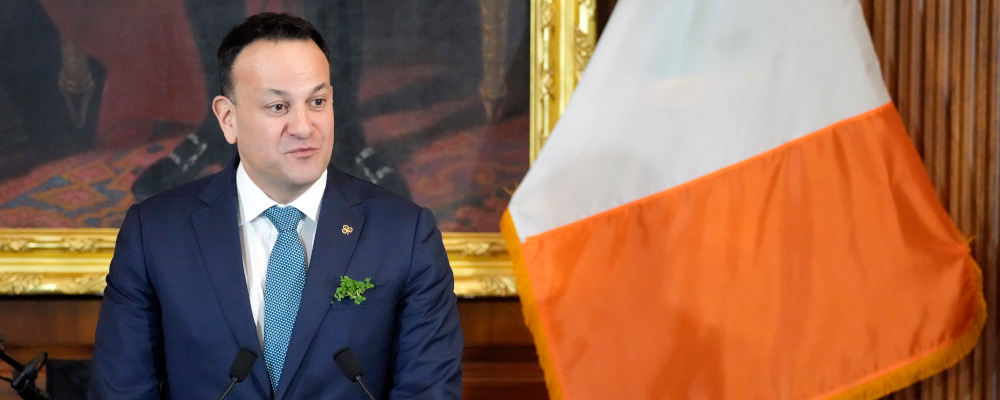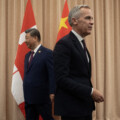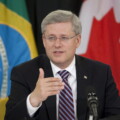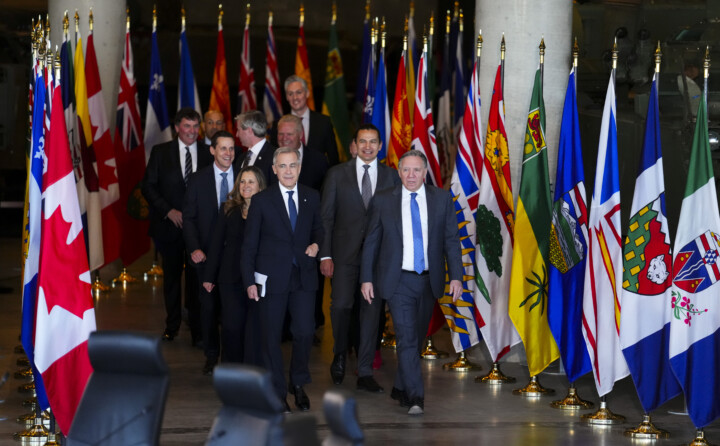In the latest Hub book review, Patrick Luciani takes a look at Judith Butler’s Who’s Afraid of Gender? (Knopf Canada 2024), and connects the book’s radical ideas on gender to two referendums recently held in Ireland concerning amendments to expand and replace current gender and family definitions in the constitution—both of which failed over social and cultural concerns about what changing the traditional language would mean.
In early March, Ireland held a referendum to amend two provisions of its constitution. The first was to change the definition of the traditional family and instead replace it to recognize “durable relationships.” The second would remove references to “women” and “mothers” and broaden the definition of care in the welfare of a family. Both amendments lost by a wide margin, which dealt the progressives and major political parties supporting the amendments a shocking blow, thwarting their attempts to bring the language of gender into the 21st century while giving victory to those concerned about encroachments on the traditional language.
The Irish aren’t immune to reform. In 1995, they approved gay marriage and later allowed for divorce. In 2018, they approved legalized abortions. Ireland is only one of four nations that approve of medical sex-change operations based on self-determination. But the question of eliminating the ancient idea of family and especially the concept of motherhood in a once deeply Catholic country where the cult of the Virgin Mary still lingers was asking too much. This despite the insistence of Ireland’s elite, including the National Women’s Council of Ireland, who fought hard for the changes, even placing the referendum on March 8, International Women’s Day.

In the same month, Judith Butler, the American philosopher and arguably the most acclaimed gender studies teacher worldwide, was promoting her new book Who’s Afraid of Gender? The Irish elite who pushed to reform Ireland’s constitution was no doubt influenced by Butler’s work on queer and gender theory. Butler wants to eliminate the very idea of motherhood and women, arguing instead that biological sex, like gender, is nothing but a social deception. Butler, who uses the pronouns they and them, goes further and claims that the body’s genitalia is itself socially constructed. Sex isn’t an obvious fact simply “based on observation.” We are born as a blank slate without the influence of biological connection. That’s why gender studies advocates refer to assigned sexes at birth, meaning that we are not rooted to them in our behaviour if we so choose.
What we believe about the differences between men and women isn’t based on any eternal concept of nature but on social power dynamics and customs, is the claim. Philosopher Martha Nussbaum reminds us this is nothing new. John Stuart Mill said the same thing in his The Subjection of Women: “What is now called the nature of women is an eminently artificial thing.” Where Mill understood that women were kept in subjugation by hierarchies of power, Butler teaches that “nature is not the ground upon which construction of gender happens.” This is an extraordinary admission even though our species, as writer and podcaster Andrew Sullivan says, existed “before we even achieved the intelligence to call it a sex binary.”
Butler demands that only an understanding of culture, history, languages, and anthropology can answer the question of what a woman is. We must see the changing nature of women and their roles through time. In other words, the privilege of knowing what a woman is belongs to a select few gender studies scholars. The idea of gender is a continuum with countless definitions of gender behaviour, ever-expanding preferences akin to identifying new chemical elements on a Periodic Table. And the only reason we define women as we do today is through the social demands of the patriarchy, heterosexuality, and, finally, white supremacy.
In Who’s Afraid of Gender? Butler continues the assault on our misguided perception of gender by widening the door that defines what a woman is to the point that any man can claim membership. Transwomen are now allowed membership and the special honour of accessing women’s spaces. Suppose a man wishes to exhibit their preferences to take on feminine attributes. But why can’t the definition of manhood expand rather than intrude on the definition of women and their spaces?

Butler’s book wasn’t written to answer questions but to attack critics of the very notion of gender and transwomen, including trans-exclusionary feminists such as J.K. Rowling and Unherd writer Kathleen Stock. They are accused of “fascism”—a word Butler uses liberally—to attack Evangelicals, Christian Orthodox, Catholics, or any organization in favour of traditional families. The author even accuses defenders of families of using “junk science” to defend their case—a curious claim given that gender studies is hardly a field based on established science. Butler lives in a Manichean world of good and evil where enemies must be destroyed. But who are these enemies when a growing number of liberals and leftists are resisting the move to diminish the rights of girls and young women?
Butler claims that attacks on gender are a “phantasm” or an illusion invented by the enemies of gender to hide behind the world’s real problems of capitalism, neoliberalism, destruction of the environment, attacks on immigrants, poverty, Indigenous Peoples, and the oppression of Black and brown people. And any resistance to Butler’s idea of gender is seen as an attack on liberal democracy.
The Irish referendum wasn’t only about rights, tolerance, or one’s right to choose a preferred gender identity but about the nature of language. When the Irish were asked to vote, they knew intrinsically that words matter, and changing the constitution by abandoning the phrase “mother” or “woman” to satisfy the political trends of progressive gender advocates would have a deep and lasting effect on their culture and identity. That was a step the Irish weren’t willing to take.
Recommended for You

Canadians lost confidence in Parliament at end of Justin Trudeau’s prime ministership: Statistics Canada

‘All risk and no reward’: The Roundtable on why Carney’s China trip is a really big deal

Mark Carney’s spelling and the ghost of Sir John A. Macdonald

Harper was right—Canadian foreign policy should prioritize the Americas: The Weekly Wrap




